 We hear this comment all the time at our sleep center. We completely understand and appreciate the frustrating experience you have living with a loved one who snores or has other breathing issues while they sleep.
We hear this comment all the time at our sleep center. We completely understand and appreciate the frustrating experience you have living with a loved one who snores or has other breathing issues while they sleep.
Most people who snore do not realize they snore, so it's very easy for them to deny it's a problem. After all, they don't have to listen to it, nor do they ever notice it.
If your husband stops breathing while asleep, this also adds fear to the frustration: it's difficult to listen to someone you love choking or struggling to breathe all night. Challenged breathing during sleep likely points to problems with obstructive sleep apnea (OSA), which is a sleep disorder with real health consequences if left untreated.
What's more, if you are the sleeping partner of a snorer, you can also suffer from sleep deprivation following night after night of listening to their loud snoring.
You have probably discussed this problem with your spouse already. And they have likely denied it's actually a problem. They may even have become defensive about it. Or, if they admit they snore, they may brush it off as nothing to worry about.
To a snorer who has not been examined to find the root cause of his (or her) snoring, snoring is harmless and couldn't possibly be that bad. Except that at least 4 times out of 10, that harmless snoring is not snoring at all, but a symptom of a serious medical problem that requires treatment.
Let's go over two scenarios to find out what you, as the spouse of a snorer, can do to get some relief for both your sleeping partner and yourself.
Help! My husband snores!
This happens to couples regardless of age and has become a leading reason why people sleep in separate bedrooms these days. A typical conversation about snoring goes something like this:
—"You snored so loud last night!"
—"I don't snore!"
—"Yes, you do!"
—"You're just a light sleeper!"
—End of conversation.
For some reason, people think snoring is either a charming affection (they imagine the cute Disney dwarf, Sleepy, and think, "What's the big deal?") or a harmless habit ("Everybody snores a little bit").
When you tell them it's a big deal because it keeps you up at night, they don't generally offer to do anything about it. They perceive snoring as a problem for the sleeping partner to overcome, like other bad habits they have that their partner has had to deal with. This is because they don't really understand what snoring is. Snoring is not a habit, it is a symptom.
What is snoring? 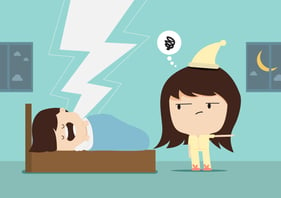
Snoring happens as the result of inhaled or exhaled air coming into contact with swollen, flabby, or overlarge tissues in the upper airway; the friction caused by the contact between the channeled air and the tissues results in vibrations which make noise, sometimes very loud noise.
Snoring can sound like whistling, groaning, growling, or rumbling. How loud it is depends upon how much friction is taking place in the upper airway. If a person sleeps on their back, their snoring will likely be more pronounced than that of the person who sleeps on their side. Regardless, some people snore no matter what side they sleep on.
Is snoring harmless?
Despite how harmless it looks when Disney's Sleepy the Dwarf snores, that doesn't mean snoring is harmless. People who are found to be chronic snorers generally wake up unrefreshed, have sore throats or dry mouths, experience grumpy moods, struggle with focus and concentration, have slippages in memory, suffer a low sex drive, or find they are sleepy all day long.
Sleep deprivation is a concern for snorers, who experience broken sleep (also known as sleep fragmentation) all night long; enough nights of untreated snoring leads to sleep deprivation and a growing sleep debt that becomes difficult to "pay off." In addition, there is mounting evidence of a relationship between cardiovascular disease and snoring that should not be ignored.
But snoring alone is not the only concern here. Snoring is also symptomatic of a legitimate, sleep-breathing disorder known as obstructive sleep apnea (OSA). While not everybody who snores has OSA, nearly all people with OSA snore. However, it is impossible to know the difference between snoring and OSA without a sleep study.
Help! My husband stops breathing in his sleep!
Does this sound more familiar to you? He may or may not make a lot of snoring noises in a rhythmic pattern, but between breaths, he will give the appearance of choking, or not breathing for a long period (at least 10 seconds or longer) before taking uncharacteristically deep (and often noisy) breaths. These "catch up" breaths may also include throat clearing or coughing or swallowing or snoring. They repeat over and over at night and become worrisome the longer he sleeps.
This is what OSA looks like.
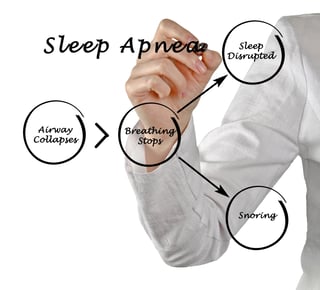
What is obstructive sleep apnea (OSA)?
In OSA, the same problems with snoring occur—the vibrations and noise caused by friction between incoming and outgoing air and the tissues of the upper airway—but with OSA, there is a mechanical obstruction in the airway that actually blocks the airflow partially or completely.
Whether the obstruction is partial or complete matters less than the fact that no air is getting into or out of the lungs during this time. If this happens many times an hour, all night long, the person suffering from these obstructive apneas (meaning "without breath") begins to suffer from oxygen depletion.
Is OSA harmless?
Hardly. Oxygen depletion impacts every single system in the body, all the way to the cellular level. The brain, the heart, the major organs, the muscles... all of these suffer as a result. If these apneas take place over weeks, months, or years of sleeping, the results are extremely harmful as well as chronic. Take your pick: cancer, diabetes, stroke, hypertension, heart disease, pulmonary disease, vascular disease, depression, obesity, and much more are the result of the damage that untreated OSA causes.
What you can do to help your spouse
Help them to understand that snoring is a serious concern that needs to be investigated. Ask them to mention their snoring to their primary care physician: their doctor will know what path to take next. Testing for sleep disorders is accurate and necessary to isolate problem snoring from OSA. Both can be treated.
TALKING POINTS
It can be very difficult to convince a snorer to get their snoring checked out. Here are some good arguments for convincing your husband to seek help for treating his snoring.
All of these suggestions show that it is not only you who benefits, but your spouse as well.
If you treat your snoring, you will:
EXPRESS CONCERN
If your spouse complains about you nudging them all night to turn over to stop the snoring, you can tell them you feel bad for doing it, but you are concerned about how loud they are snoring and about their problems with choking of suffocating in their sleep.
FAMILY INTERVENTION
Loved ones who also may sleep with your spouse (parents, children, or siblings on vacations, camping trips, etc.) can also be encouraged to tell your spouse that they too find the snoring makes it very difficult to sleep and that they may not want to continue to enjoy these trips together until the snorer treats their problem.
CANDID CAMERA
If your husband still continues to snore, you may set up an audio-visual recording station to record the sound and image of your partner snoring so that he can see for himself how bad the snoring is. Sometimes this is what it takes to convince your loved one to address their snoring problems.
What you can do to help yourself
Sleeping with a snorer can lead to interruptions in sleep all night long for you as well. This is what we like to call "spousal arousal." If you are awakened by loud snoring all night long, you run the same risks as the spouse who's doing all the snoring. Sleep deprivation is considered a public health crisis by the Centers for Disease Control. To avoid sleep deprivation, you need to protect yourself from the sleep fragmentation caused by your husband's snoring even if he doesn't do anything about it himself.
If you can't get your husband to treat his snoring or OSA, try sleeping with ear plugs, or use a white noise machine or soft music in noise-cancelling earphones to cover up the sound. If this doesn't work, you may need to sleep in a different bed entirely. Maybe if your spouse sees that you are taking serious measures to protect your own sleep health, even when he won't, he might begin to understand just how disruptive it really is and change his attitude about his snoring problem.
Has somebody told you that you snore or having breathing problems as you sleep? Or, do you have a spouse who snores or struggles to breathe easy while asleep? We can help you decide how to approach your concerns here at Sleep Resolutions: a quick call to one of our two convenient locations in Kansas (Garden City or Dodge City) (620) 271-9400 can help you or your loved one take the next step to quiet, healthy sleep.






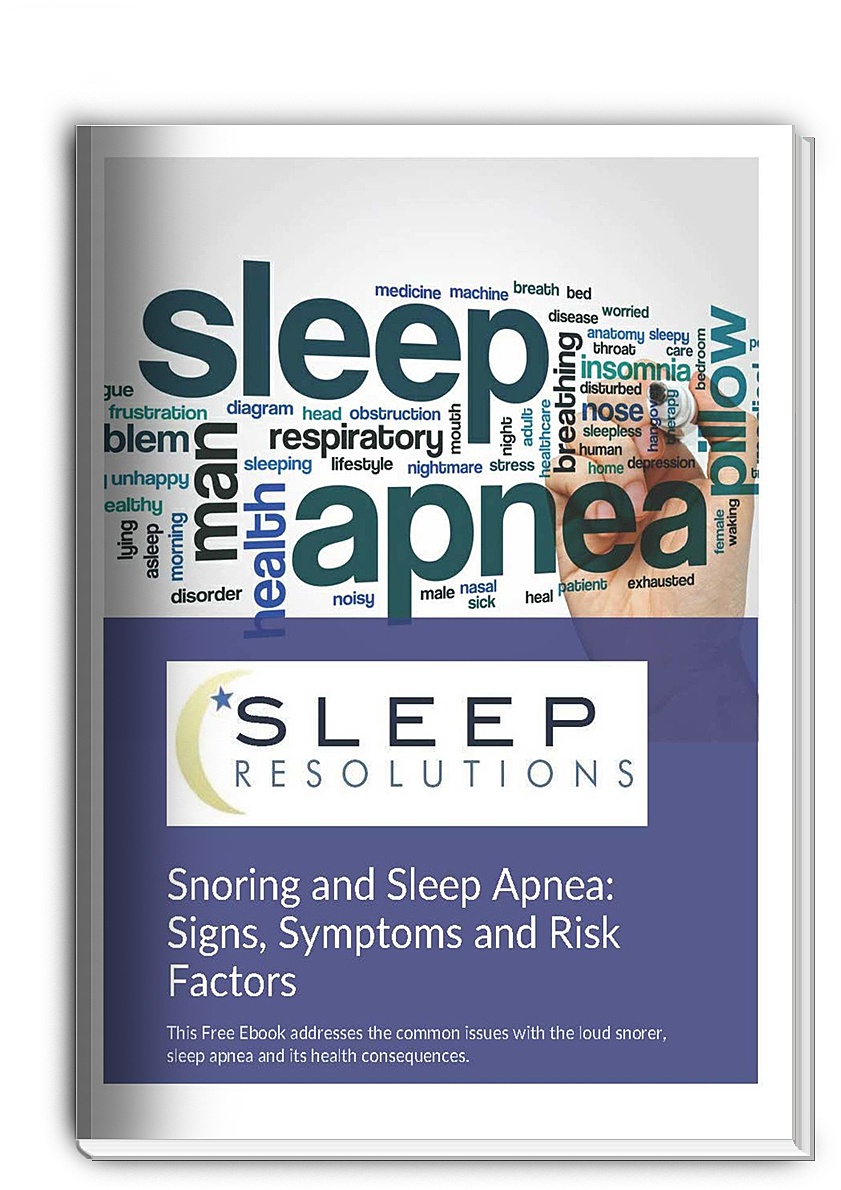

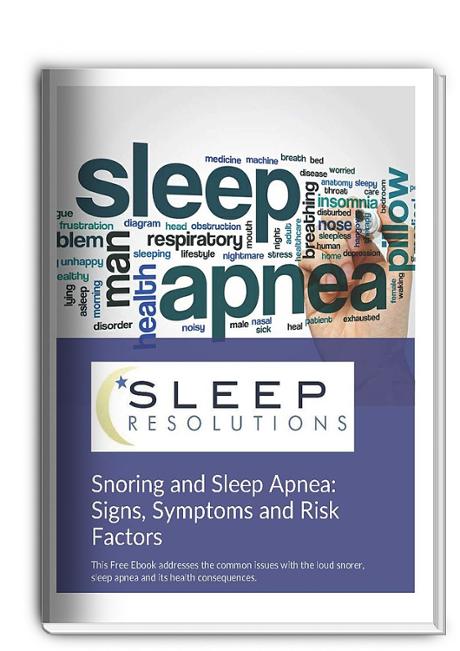

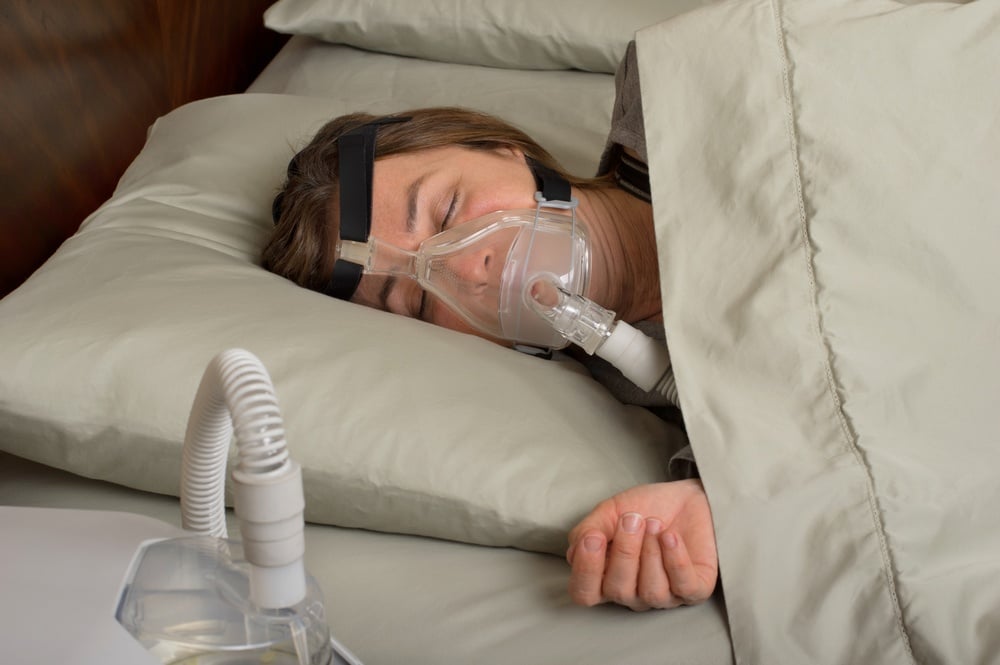

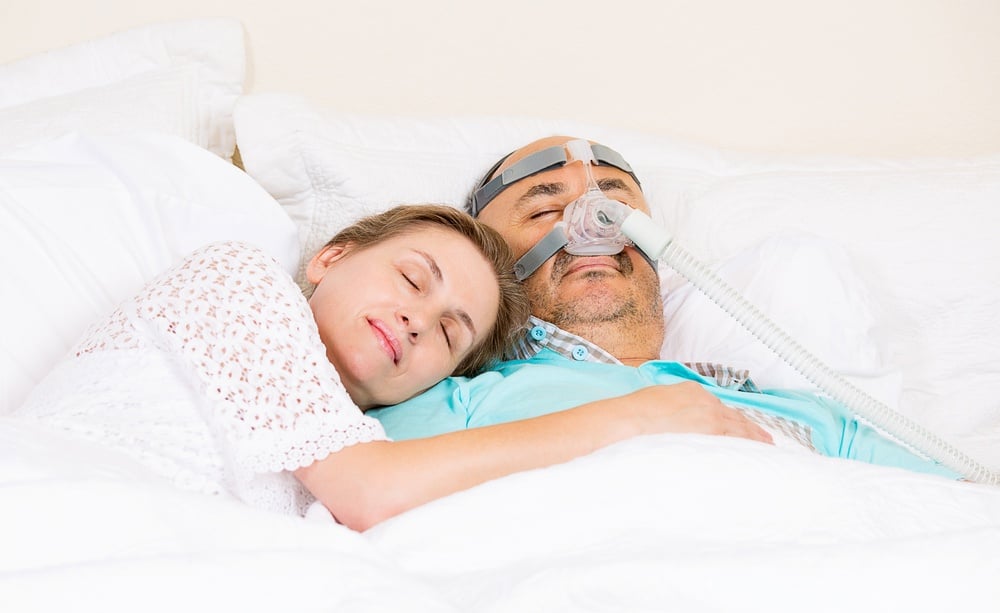


Leave a comment